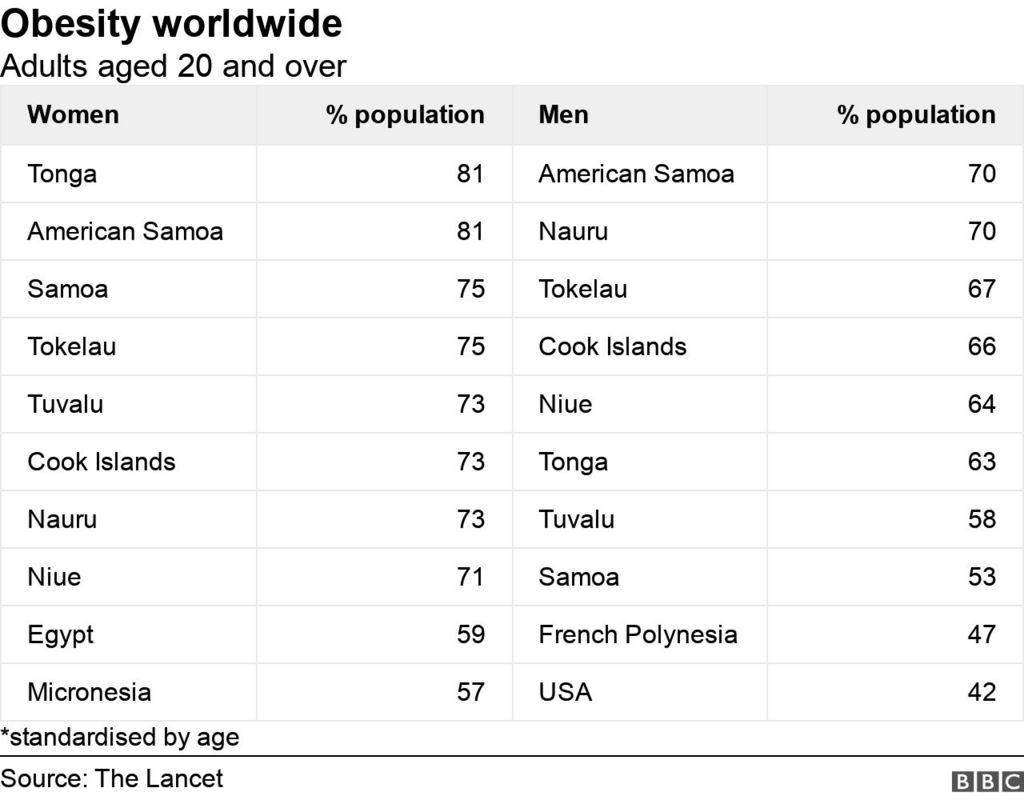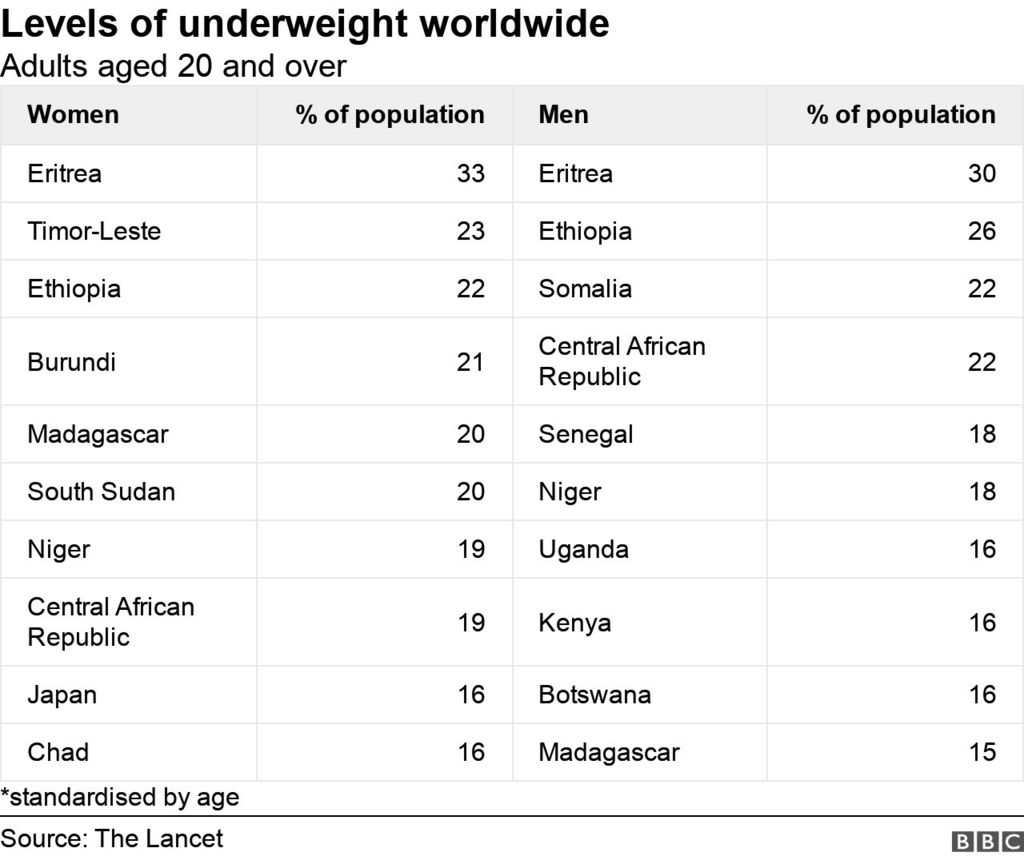More than a billion people are living with obesity around the world, global estimates published in The Lancet show.
This includes about 880 million adults and 159 million children, according to 2022 data.
The highest rates are in Tonga and American Samoa for women and American Samoa and Nauru for men, with some 70-80% of adults living with obesity.
Out of some 190 countries, the UK ranks 55th highest for men and 87th for women.
The international team of scientists say there is an urgent need for major changes in how obesity is tackled.
Obesity can increase the risk of developing many serious health conditions, including heart disease, type 2 diabetes and some cancers.
- The US comes 10th highest for men and 36th highest for women
- India ranks 19th lowest for women and 21st lowest for men
- China is 11th lowest for women and 52nd lowest for men

Senior researcher Prof Majid Ezzati, of Imperial College London, told the BBC: "In many of these island nations it comes down to the availability of healthy food versus unhealthy food.
"In some cases there have been aggressive marketing campaigns promoting unhealthy foods, while the cost and availability of healthier food can be more problematic."
Prof Ezzati, who has been looking at global data for years, says he is surprised at the speed the picture has changed, with many more countries now facing an obesity crisis, while the number of places where people being underweight is regarded as the biggest concern, has decreased.
Ranking global obesity rates (the percentage of population classed as obese, after age differences are accounted for), researchers found:
The report, spanning 1990 and 2022, found the rate of obesity quadrupled among children and adolescents. Meanwhile for adults, the rate more than doubled in women and nearly tripled in men.
At the same time, the proportion of adults classed as underweight has fallen by 50%, but researchers emphasise it still remains a pressing problem, particularly among the poorest communities.

World Health Organization (WHO) director general Dr Tedros Adhanom Ghebreyesus said: "This new study highlights the importance of preventing and managing obesity from early life to adulthood, through diet, physical activity, and adequate care."
He added that it would take the work of governments and communities and "importantly requires the co-operation of the private sector, which must be accountable for the health impacts of their products".
Study co-author Dr Guha Pradeepa, from the Madras Diabetes Research Foundation, says major global issues risk worsening malnutrition caused by both obesity and being underweight.
She said: "The impact of issues such as climate change, disruptions caused by the Covid-19 pandemic and the war in Ukraine risk worsening both rates of obesity and underweight, by increasing poverty and the cost of nutrient-rich foods.
"The knock-on effects of this are insufficient food in some countries and households, and shifts to less healthy food in others."
The network of more than 1,500 researchers, collaborating with the WHO, analysed height and weight measurements from some 220 million people aged five and over.
They used a measure called body mass index.
While they acknowledge this is an imperfect measure of the extent of body fat, and say some countries had better data than others, they argue it is the most widely used, making this global analysis possible.
BBC





